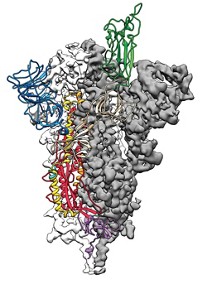Advertisement
Grab your lab coat. Let's get started
Welcome!
Welcome!
Create an account below to get 6 C&EN articles per month, receive newsletters and more - all free.
It seems this is your first time logging in online. Please enter the following information to continue.
As an ACS member you automatically get access to this site. All we need is few more details to create your reading experience.
Not you? Sign in with a different account.
Not you? Sign in with a different account.
ERROR 1
ERROR 1
ERROR 2
ERROR 2
ERROR 2
ERROR 2
ERROR 2
Password and Confirm password must match.
If you have an ACS member number, please enter it here so we can link this account to your membership. (optional)
ERROR 2
ACS values your privacy. By submitting your information, you are gaining access to C&EN and subscribing to our weekly newsletter. We use the information you provide to make your reading experience better, and we will never sell your data to third party members.
Modeling
Computational researchers pledge openness in COVID-19 studies
Hundreds of researchers commit to sharing data and tools so they can better work together to understand and treat SARS-CoV-2
by Sam Lemonick
May 7, 2020
| A version of this story appeared in
Volume 98, Issue 18
More than 200 scientists have signed a pledge to share their biomolecular simulation data from studies of SARS-CoV-2, the virus that causes COVID-19 (J. Chem. Inf. Model. 2020, DOI: 10.1021/acs.jcim.0c00319). The authors of the pledge, Rommie E. Amaro of the University of California San Diego and Adrian J. Mulholland of the University of Bristol, say that more openness and collaboration in the molecular simulation community will lead to better models of how SARS-CoV-2 infects people and how to prevent and treat COVID-19.
The signers of the pledge commit to submitting preprints of their results and releasing data sets, analytical methods, and models that would let other researchers reproduce or analyze their results. They also pledge to license their methods for others to use when possible. Mulholland notes that researchers may be limited in what they can share by software copyright restrictions or if they work in industry. However, nearly all the commitment’s signers work in universities or research institutes.
C&EN has made this story and all of its coverage of the coronavirus epidemic freely available during the outbreak to keep the public informed. To support our journalism, become a member of ACS or sign up for C&EN's weekly newsletter.
Amaro and Mulholland say researchers are already following through on their commitment in the month since the pledge went public. The two also say that more scientists are welcome to join in the pledge.
Matthieu Chavent, an open-science advocate and molecular modeler at the Institute of Pharmacology and Structural Biology, hopes to see these principles maintained beyond the current crisis. But he points out that the field will need new commitments from journals and infrastructure like databases before these commitments can spread more widely.




Join the conversation
Contact the reporter
Submit a Letter to the Editor for publication
Engage with us on Twitter